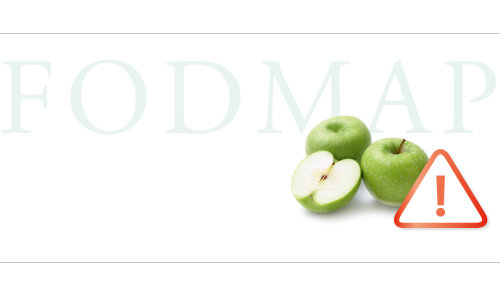Professional articles
Here you will find a selection of independently written articles taken from our healthcare professional journal - The Forum'. If you would like to register to receive a twice yearly electronic copy of The Forum, please click HERE.
Professional articles
14
The Intestinal Microbiome: Exploring a New World
The whole of the bacteria hosted in our intestine, or the microbiome, forms a vital critical mass that interacts with our body – “for better or worse” – starting from birth. As recent studies have shown, the intestinal microbiome appears to have significant connections to gluten-related disorders.
>> Read more... <<<
>> Read more... <<<

Gut Microbiota in Health and Disease
Ms Wilson’s article reviews the influence of the environment on the gut microbiome and discusses potential dietary avenues to improve it.
>> Read more... <<<
>> Read more... <<<

The influence of the microbiome on gluten-related diseases
The increasing prevalence of food intolerances, especially in relation to certain carbohydrates, represents a global health problem. Moreover, intolerance of gluten and gluten-bound substances, e.g. amylase-trypsin inhibitor (ATI) is blamed for intestinal (e.g. meteorism, pain, constipation, diarrhea) and extra intestinal symptoms (e.g. fatigue, headaches, joint pain, skin irritation) in affected patients. The pathogenesis of food intolerances is blamed on factors such as changes in the composition of the intestinal flora and its influence on mucous membrane immune tolerance.
>> Read more... <<<
>> Read more... <<<

The importance of the microbiota in the pathogenesis and treatment of celiac disease
The composition of the gut microbiome is influenced by many factors. The microbiota may also be a key influencer in overall health and disease outcomes.
>> Read more... <<<
>> Read more... <<<

Celiac disease: the clinical chameleon
The chameleon is a well-known African rep-tile famous for its ability to change the color of its skin in order to blend in with its sur-roundings. In medicine, the term “chame-leon-like” is used to describe diseases which can appear in many different forms. Celiac disease, with its diverse, ever-changing nature, is one such disease.
>> Read more... <<<
>> Read more... <<<

A Global Map of Celiac Disease
This article focuses on the varying frequency of celiac disease in “time and space”. The information it contains is not only relevant for statistical purposes but also serves to formulate hypotheses on the factors which contribute to the development of this disease that is so widespread in modern society.
>> Read more... <<<
>> Read more... <<<

Analysis of dietary patterns in people with and without celiac disease
How balanced is the diet of celiac disease patients? In this article, Nicoletta Pellegrini explores this topic in her current study.
>> Read more... <<<
>> Read more... <<<

Dietary compliance and the gluten-free diet
Adherence to the gluten-free diet is not always easy. There are various factors that influence the dietary behavior of individuals with celiac disease.
>> Read more... <<<
>> Read more... <<<

What is refractory celiac disease and how is it diagnosed? An insight into current research
Celiac disease can be divided into different types. This article describes refractory celiac disease, the diagnostic process and new testing procedures.
>> Read more... <<<
>> Read more... <<<

The FODMAP concept. What role does Gluten play?
The focus of FODMAPs (Fermentable Oligo, Di, Monosaccharides and Polyols) are the food ingredients, especially of plant origin, such as wheat. However, it its likely that the Gluten Sensitivity has a different cause.
>> Read more... <<<
>> Read more... <<<

FODMAPs: is the evidence stacking up?
A diet low in short-chain fermentable carbohydrates (FODMAPs) is fast becoming an accepted dietary treatment for irritable bowel syndrome (IBS) and other functional bowel disorders due to its powerful effect on reducing gastrointestinal symptoms.
>> Read more... <<<
>> Read more... <<<

The Low FODMAP Diet for Irritable Bowel Syndrome
IBS is a chronic and debilitating functional gastrointestinal disorder with research suggesting that it effects at least 10% of the UK, European and US population.
>> Read more... <<<
>> Read more... <<<

Female patient with irritable bowel syndrome: a case study.
The following case study is based on a common patient profile using epidemiological data.
>> Read more... <<<
>> Read more... <<<

R&D 2003–2013: From research to product development
At the end of 2013, the Dr. Schär Research and Development Department celebrated its tenth anniversary. Virna Cerne, head of the R&D center describes the milestones of the last few years – in particular how the quality of gluten-free products has improved and gives a view on what might be expected in the future in this exciting market.
>> Read more... <<<
>> Read more... <<<

The Intestinal Microbiome: Exploring a New World
The whole of the bacteria hosted in our intestine, or the microbiome, ...

Gut Microbiota in Health and Disease
Ms Wilson’s article reviews the influence of the environment on the gu...

The influence of the microbiome on gluten-related diseases
The increasing prevalence of food intolerances, especially in relation...

The importance of the microbiota in the pathogenesis and treatment of celiac disease
The composition of the gut microbiome is influenced by many factors. T...

Celiac disease: the clinical chameleon
The chameleon is a well-known African rep-tile famous for its ability ...

A Global Map of Celiac Disease
This article focuses on the varying frequency of celiac disease in “ti...

Analysis of dietary patterns in people with and without celiac disease
How balanced is the diet of celiac disease patients? In this article, ...

Dietary compliance and the gluten-free diet
Adherence to the gluten-free diet is not always easy. There are variou...

What is refractory celiac disease and how is it diagnosed? An insight into current research
Celiac disease can be divided into different types. This article descr...

The FODMAP concept. What role does Gluten play?
The focus of FODMAPs (Fermentable Oligo, Di, Monosaccharides and Polyo...

FODMAPs: is the evidence stacking up?
A diet low in short-chain fermentable carbohydrates (FODMAPs) is fast ...

The Low FODMAP Diet for Irritable Bowel Syndrome
IBS is a chronic and debilitating functional gastrointestinal disorder...

Female patient with irritable bowel syndrome: a case study.
The following case study is based on a common patient profile using ep...

R&D 2003–2013: From research to product development
At the end of 2013, the Dr. Schär Research and Development Department ...
